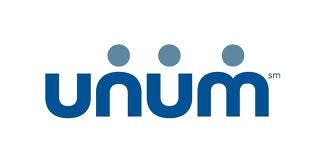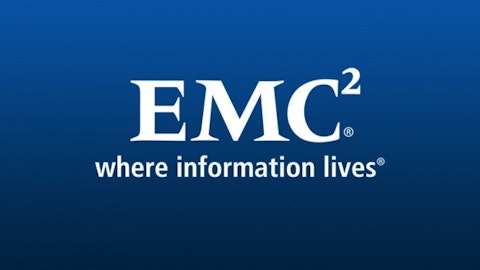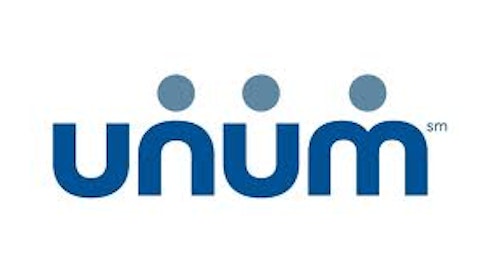American insurers not only need to increase customers by selling more policies, but also need to earn from their investments. A fluctuating underwriting and weak investment yield boost financial and operating risks. Although the pricing environment and industry demand has witnessed some improvement, the new policies the Fed will execute will certainly impose changes in the asset allocation of these firms. Which insurance companies will better handle this new context?
Here, I take a look at three America-based insurers and try to figure this out.
The company’s first-quarter performance improved in year-over-year terms thanks to higher premiums and investment income, which improved the top line and underwriting profit. Net income grew 5.2% to $8.8 million and total revenue was $86.5 million, up 9.9% from $78.7 million in the prior-year quarter.
Despite the economic turmoil, policy renewals have been consistent for Amerisafe, Inc. (NASDAQ:AMSF), averaging 91.5%. This enhanced employer loyalty and policy retention is backed by the company’s specialized knowledge and extensive experience. Hence, Amerisafe, Inc. (NASDAQ:AMSF) enjoys a more stable business than many of its peers. After a period of negative growth, Amerisafe, Inc. (NASDAQ:AMSF) managed to improve its top line, which grew 13.1% in 2011 and 14.5% in 2012. If this trend continues, investors will see bigger profits ahead.
Plus, the company makes more investment income from its premiums compared to most of the industry, as the time period between the receipt of premiums and the ultimate settlement of claims is much longer than most competitors’ business lines.
I am sure that Amerisafe, Inc. (NASDAQ:AMSF)’s prudent capital management, risk-free balance sheet, and financial strength will provide decent long-term growth.
The company’s first quarter EPS of $1.69 lagged the year-ago quarter’s earnings of $1.74. Operating earnings decreased 2.9% to $790 million. AFLAC Incorporated (NYSE:AFL) is experiencing poor financial performance and a disappointing sales outlook for its primary products in Japan, which represents 78% of total revenue. An unfavorable dollar/yen exchange rate has punished the company, producing lower premiums and investment income in the country. On the other side, the U.S. operations show some improvement, showing healthy capital ratios and reduced expenses.
AFLAC Incorporated (NYSE:AFL)’s top line remains sufficiently exposed to a harsh operating environment.
Institutional and individual clients are being affected by the ongoing weak consumption levels and sluggish credit markets. Despite the re-pricing initiatives taken in April this year, management projects a 40%-60% decline in its WAYS life policy sales. This will severely impact the company’s financials.
Intense economic volatility is hitting AFLAC Incorporated (NYSE:AFL). The company’s investment portfolio holds 43% in Japanese government bonds, which have been adversely impacted by the historically low interest-rate environment. The fairly recent weakness of the yen has also translated in fewer dollars to be reported.
Unum Group (NYSE:UNM) provides disability and other insurance products in the U.S. and the U.K. It is the leading disability income writer.
The company delivered improvements in its first quarter, mostly driven by a $95 million share repurchase and great development of the Unum Group (NYSE:UNM) U.S. and Colonial Life segment. The closed block segment made a great recovery in the quarter as well, after a poor performance for several quarters. EPS reached $0.80, an increase of 9.6% year over year.
Unum Group (NYSE:UNM) is focusing on switching to a mix of businesses with higher growth and stable margins. Management set operating income per share to increase in the 0%-6% range this year.
Over the last five years, Unum Group (NYSE:UNM) has bought back $2.3 million worth of shares and expects to repurchase $500 million this year. This shows the company’s cash position and willingness to maintain the stock price. Plus, management approved a $0.13 per share dividend payment in April this year, a 23.8% increase year over year.
However, Unum Group (NYSE:UNM)’s investment portfolio is primarily made up of fixed income securities, which might find new demand in a context of higher interest rates, but more probable volatility due to the Fed’s decreased participation. The net result of these movements and its impact on Unum Group (NYSE:UNM) is still uncertain and should be monitored.
Conclusion
I believe Amerisafe, Inc. (NASDAQ:AMSF) is well-positioned to capitalize on the changing market dynamics. If workers’ compensation remains firm or even increases, the company should profit.
AFLAC Incorporated (NYSE:AFL) still shows weakness in sales, especially in Japan. Repatriation of funds and investment losses in the country, plus a lack of a strong tool to mitigate interest and currency risks make me remain cautious over buying this stock.
Unum maintains a solid capital position. Its adequate risk-based capital ratio, low leverage, and high levels of liquidity give the company confidence to maneuver the new interest rate context. However, no one escapes volatility.
Louie Grint has no position in any stocks mentioned. The Motley Fool recommends Aflac. Louie is a member of The Motley Fool Blog Network — entries represent the personal opinion of the blogger and are not formally edited.
The article American Insurers and the New Interest Rate Scenario: How Will They Perform? originally appeared on Fool.com is written by Louie Grint.
Copyright © 1995 – 2013 The Motley Fool, LLC. All rights reserved. The Motley Fool has a disclosure policy.




